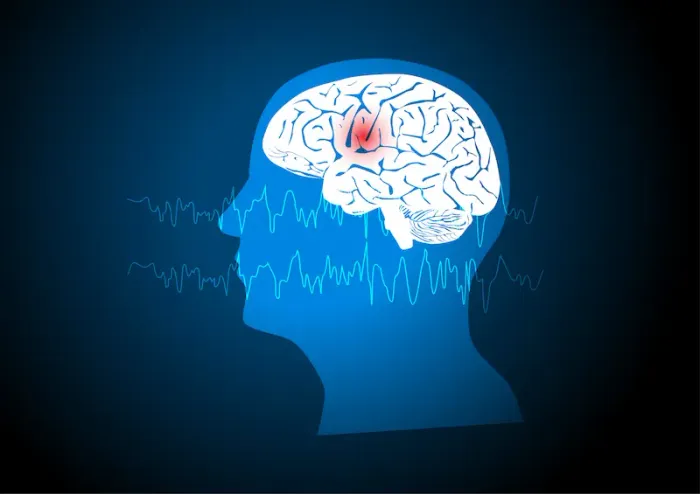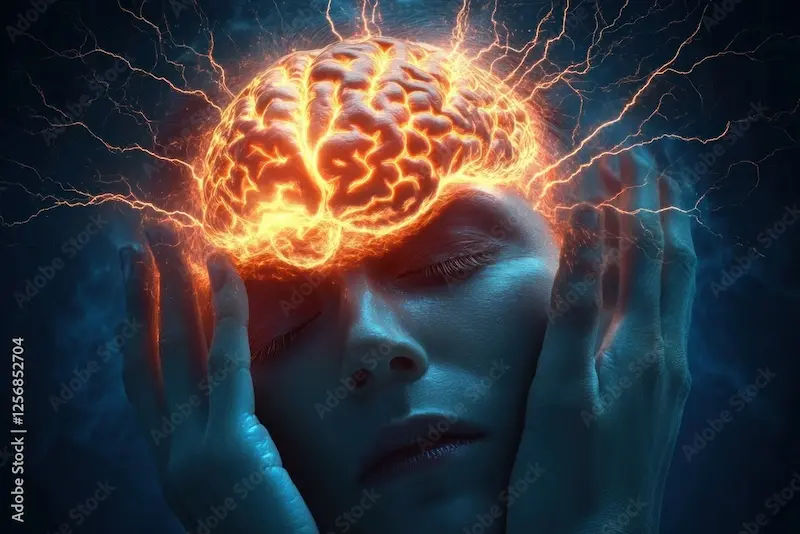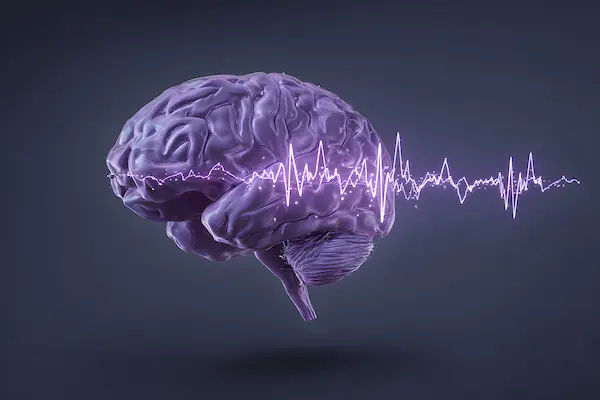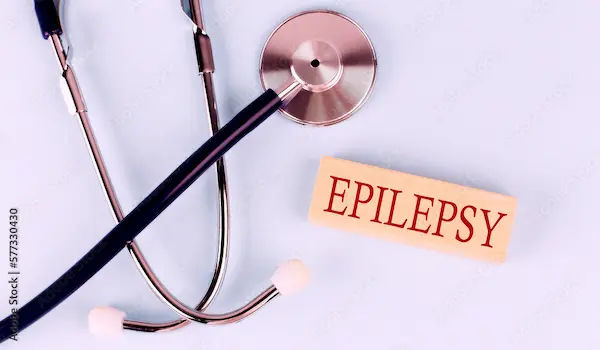What is Epilepsy Causes, Symptoms, and Modern Treatments
Discover what causes epilepsy, its common symptoms, and modern treatment options. Learn how to identify warning signs, handle first aid, and follow lifestyle guidance to live well with epilepsy.

Written by Dr. Shaik Abdul Kalam
Reviewed by Dr. D Bhanu Prakash MBBS, AFIH, Advanced certificate in critical care medicine, Fellowship in critical care medicine
Last updated on 13th Jan, 2026

Introduction
Imagine a sudden, temporary glitch in the complex electrical system of your brain. This malfunction can cause a wide range of experiences, from a brief lapse in awareness to full-body convulsions. This is the reality of a seizure, and when a person has a tendency to experience recurrent, unprovoked seizures, it is known as epilepsy. Affecting nearly 50 million people worldwide according to the World Health Organisation (WHO), it's one of the most common neurological disorders globally. Yet, despite its prevalence, it remains shrouded in misunderstanding and stigma. This article aims to demystify epilepsy by comprehensively exploring what it is, what causes it, how to recognise its signs, and the modern treatment options that allow individuals to manage their condition and lead full, active lives. Whether you're newly diagnosed, caring for a loved one, or simply seeking to understand, this guide provides the essential knowledge you need.
What Exactly is Epilepsy? A Definition
At its core, epilepsy is not a single disease but a spectrum condition characterised by an enduring predisposition to generate epileptic seizures. It is defined by the International League Against Epilepsy (ILAE) as having at least two unprovoked seizures occurring more than 24 hours apart, or one unprovoked seizure with a high likelihood of more in the next ten years. The key term is "unprovoked," meaning the seizure wasn't caused by a temporary, reversible insult to the brain, such as extremely low blood sugar, a high fever in a child (febrile seizure), or immediate alcohol withdrawal. The seizures in epilepsy result from sudden, excessive, and synchronised electrical discharges in groups of brain cells (neurons), which can disrupt normal functioning, much like an electrical storm.
Consult a Neurologist for the best advice
The Many Faces of Seizures: Recognising the Symptoms
Seizure symptoms are incredibly diverse and depend on which part of the brain the electrical disturbance starts in and how far it spreads. Not all seizures involve dramatic convulsions. Broadly, they are classified into two main categories.
Generalised Seizures
These involve both sides of the brain from the very beginning.
• Tonic-Clonic (Grand Mal) Seizures: These are the most recognised type. The "tonic" phase involves stiffening of muscles and a fall, often accompanied by a cry. The "clonic" phase involves rhythmic jerking of the limbs and face. The person may lose consciousness, bite their tongue, and lose bladder control. Recovery (the postictal phase) involves fatigue, confusion, and headache.
• Absence (Petit Mal) Seizures: More common in children, these involve brief lapses in awareness. The person may appear to be staring blankly into space for a few seconds, sometimes with subtle eye fluttering or lip smacking. They begin and end abruptly, with no memory of the event.
Focal Seizures
Previously called partial seizures, these start in one specific area of the brain.
• Focal Aware Seizures: The person remains awake and aware during the seizure. Symptoms are varied and can include sudden jerking of a limb, experiencing unusual smells or tastes, a rising sensation in the stomach, or intense feelings of déjà vu or fear.
• Focal Impaired Awareness Seizures: These involve a change or loss of consciousness. The person may appear confused, dazed, and perform repetitive, automatic movements like lip-smacking, fumbling, walking in circles, or chewing.
What Leads to Epilepsy? Uncovering the Root Causes
In over half of all cases, no specific cause can be identified. However, when a cause is known, it typically falls into one of the following categories. Understanding the underlying causes of seizures is a critical step toward effective management.
Genetic Influences in Epilepsy
Some types of epilepsy are hereditary, caused by specific genetic mutations that affect how brain cells communicate. These genetic forms are often, but not always, present in childhood. Researchers have identified genes linked to various epilepsy syndromes, such as Dravet syndrome or juvenile myoclonic epilepsy.
Structural Brain Changes and Damage
Any abnormality in the brain's structure can disrupt its electrical activity. This is a major cause of epilepsy in adults. Common structural causes include:
• Head trauma from accidents or injuries.
• Stroke or transient ischemic attack (TIA).
• Brain tumors or cysts.
• Brain infections like meningitis, encephalitis, or neurocysticercosis.
• Lack of oxygen to the brain (e.g., during a difficult birth).
• Hippocampal sclerosis, a scarring in the temporal lobe that is a common cause of focal epilepsy.
Metabolic and Immune-Related Causes
Certain metabolic disorders can predispose an individual to seizures. Additionally, autoimmune diseases where the body's immune system mistakenly attacks brain cells (autoimmune encephalitis) are a recognised, though less common, cause of epilepsy.
Infectious Causes and Epilepsy
Infections are a major cause of epilepsy worldwide, particularly in lower-resource settings. Infections like cerebral malaria, HIV, and tuberculosis can lead to brain inflammation and scarring, creating a focus for future seizures.
Unknown Causes (Cryptogenic Epilepsy)
When no clear genetic, structural, metabolic, or infectious cause is found despite thorough investigation, the epilepsy is classified as unknown or cryptogenic. Advances in MRI and genetic testing are continually reducing the number of cases in this category.
How is Epilepsy Diagnosed? The Path to Clarity
A proper epilepsy diagnosis is a multi-step process crucial for determining the right treatment plan. If you experience a possible seizure, consulting a neurologist is essential.
The Critical Role of Medical History and Witness Accounts
The doctor's most powerful tool is a detailed description of the event. Since many people have no memory of their seizure, an account from a witness is invaluable. The doctor will ask about warning signs, what happened during the event, how long it lasted, and how you felt afterward.
Diagnostic Tests: EEG, MRI, and Beyond
• Electroencephalogram (EEG): This test records the brain's electrical activity through electrodes placed on the scalp. It can detect abnormal patterns that suggest a predisposition to seizures. Sometimes, a longer video-EEG monitoring in a hospital is needed to capture an event.
• MRI (magnetic resonance imaging): An MRI scan provides detailed images of the brain's structure to look for lesions, scars, tumors, or malformations that could be causing seizures.
• Blood Tests: These can help rule out other conditions like diabetes, infections, or genetic disorders that might mimic epilepsy symptoms.
If your doctor suspects epilepsy based on your history, they may recommend these diagnostic tests. For a convenient and reliable experience, Apollo24|7 offers home collection for blood tests to help rule out metabolic causes.
Get Your Health Assessed
Effective Strategies for Epilepsy Treatment and Management
The goal of treatment is complete seizure freedom with no side effects. For about 70% of people, this is achievable with one or more of the following strategies.
Anti-Seizure Medications (ASMs): The First Line of Defense
ASMs (also called anticonvulsants) are the most common and effective initial treatment. They work by stabilising the electrical activity in the brain. Finding the right medication and dosage is often a process of careful titration and monitoring. It is crucial to take medication exactly as prescribed.
Surgical Interventions for Drug-Resistant Epilepsy
For the 30% of people whose seizures are not controlled by medication (drug-resistant epilepsy), surgery may be an option. The most common procedure involves removing the specific area of the brain where seizures originate, provided it is not responsible for critical functions like speech or movement.
Dietary Therapies: The Ketogenic Diet and Modifications
A high-fat, very low-carbohydrate ketogenic diet can be highly effective, particularly for certain childhood epilepsies like Lennox-Gastaut syndrome. It forces the body to burn fats instead of carbs, producing ketones, which have an anti-seizure effect. Modified versions like the Modified Atkins Diet are also used.
Neurostimulation Devices: VNS, DBS, and RNS
These devices are implanted and help modulate brain activity to prevent seizures.
• Vagus Nerve Stimulator (VNS): A device implanted in the chest that sends mild electrical pulses to the brain via the vagus nerve.
• Deep Brain Stimulation (DBS): Electrodes are implanted deep within the brain and connected to a stimulator in the chest.
• Responsive Neurostimulation (RNS): A closed-loop system that detects abnormal electrical activity and delivers a stimulating pulse to stop a seizure before it begins.
Managing a complex condition like epilepsy requires specialised care. If your current treatment plan isn't providing full seizure control, it may be time to consult a specialist. You can book a physical visit to a neurologist with Apollo24|7 to discuss advanced options like surgery or neurostimulation.
Essential Seizure First Aid: What to Do and What to Avoid
Knowing how to respond to a tonic-clonic seizure can save a life.
• DO: Stay calm. Time the seizure. Gently guide the person to the floor and place something soft under their head. Clear the area of hard or sharp objects. Turn them onto their side after the jerking stops to help keep their airway clear.
• DO NOT: Hold the person down. Put anything in their mouth. Try to give them water or food until they are fully alert. Perform CPR during the seizure.
For a focal aware or absence seizure, no first aid is needed other than staying with the person and guiding them from danger.
Living a Full Life with Epilepsy: Safety and Lifestyle Tips
An epilepsy diagnosis requires some adjustments, but it doesn't have to define your life. Key tips include:
• Identify and Avoid Triggers: Common triggers include lack of sleep, stress, flashing lights, alcohol, and missed medications.
• Prioritise Sleep: Consistent, quality sleep is one of the most important factors in seizure control.
• Manage Stress: Techniques like meditation, yoga, and exercise can be beneficial.
• Be Safety Conscious: Take showers instead of baths, use a medical alert bracelet, and discuss driving regulations with your doctor.
Conclusion: Empowerment Through Knowledge and Care
Epilepsy is a complex and multifaceted disorder, but it is also one that is increasingly manageable. From understanding the diverse symptoms of epilepsy to exploring the root causes of seizures, and from leveraging advanced diagnostic tools to employing a growing arsenal of treatments—including medications, surgery, diet, and devices—the path to seizure control is more robust than ever. The journey begins with knowledge, is sustained by proper medical care, and is empowered by a supportive community. If you or someone you know is affected by seizures, remember that you are not alone. Seeking the guidance of a qualified neurologist is the most critical step toward taking control and living a life not limited by this condition.
Consult a Neurologist for the best advice
Consult a Neurologist for the best advice

Dr Debnath Dwaipayan
Neurosurgeon
9 Years • MBBS, MS(Gen. Surgery), DrNB (Neurosurgery)
Delhi
Apollo Hospitals Indraprastha, Delhi

Dr. Ganeshgouda Majigoudra
Neurologist
10 Years • MBBS, MD ( GENERAL MEDICINE) DM (NEUROLOGY)
Bengaluru
Apollo Clinic, JP nagar, Bengaluru

Dr. Aditendraditya Singh Bhati
Neurosurgeon
21 Years • MBBS(2004), DNB Neurosurgery(2014); MNAMS; Fellow Skull Base Endoscopy (Italy), Fellow Extended Skull Base ( Weill Cornell, USA), Fellow ZAP-X Radiosurgery. Member of American Association of Neurological Surgeons
Delhi
Apollo Hospitals Indraprastha, Delhi
(100+ Patients)

Dr. Jaidev S
Neurosurgeon
10 Years • MBBS, MS ( Genera Surgery), MCH Neurolosurgery
Bengaluru
Apollo Clinic, Indiranagar, Bengaluru

Dr. Uddalak Chakraborty
Neurologist
8 Years • MBBS, MD(GENL.MED.),DM(NEUROLOGY)
Kolkata
MCR SUPER SPECIALITY POLY CLINIC & PATHOLOGY, Kolkata
Consult a Neurologist for the best advice

Dr Debnath Dwaipayan
Neurosurgeon
9 Years • MBBS, MS(Gen. Surgery), DrNB (Neurosurgery)
Delhi
Apollo Hospitals Indraprastha, Delhi

Dr. Ganeshgouda Majigoudra
Neurologist
10 Years • MBBS, MD ( GENERAL MEDICINE) DM (NEUROLOGY)
Bengaluru
Apollo Clinic, JP nagar, Bengaluru

Dr. Aditendraditya Singh Bhati
Neurosurgeon
21 Years • MBBS(2004), DNB Neurosurgery(2014); MNAMS; Fellow Skull Base Endoscopy (Italy), Fellow Extended Skull Base ( Weill Cornell, USA), Fellow ZAP-X Radiosurgery. Member of American Association of Neurological Surgeons
Delhi
Apollo Hospitals Indraprastha, Delhi
(100+ Patients)

Dr. Jaidev S
Neurosurgeon
10 Years • MBBS, MS ( Genera Surgery), MCH Neurolosurgery
Bengaluru
Apollo Clinic, Indiranagar, Bengaluru

Dr. Uddalak Chakraborty
Neurologist
8 Years • MBBS, MD(GENL.MED.),DM(NEUROLOGY)
Kolkata
MCR SUPER SPECIALITY POLY CLINIC & PATHOLOGY, Kolkata
More articles from Epilepsy
Frequently Asked Questions
1. Can epilepsy be cured?
While there is no universal 'cure' for epilepsy, it can often be completely controlled. For some, particularly children with certain syndromes, seizures may eventually go away entirely. For others, long-term treatment is needed to manage the condition effectively. Surgery can be curative if the specific seizure focus is successfully removed.
2. What is the difference between a seizure and epilepsy?
A seizure is a single event, a temporary surge of electrical activity in the brain. Epilepsy is a chronic neurological condition defined by having multiple, unprovoked seizures over time. Having one seizure does not mean you have epilepsy.
3. What are common triggers for epileptic seizures?
Common triggers include missing doses of medication, sleep deprivation, high stress or anxiety, flashing lights or patterns (in a specific type called photosensitive epilepsy), alcohol and drug use, and hormonal changes during the menstrual cycle.
4. Is epilepsy genetic? Will I pass it to my children?
Some forms of epilepsy have a genetic component, but most are not directly inherited in a simple pattern. The overall risk of a child developing epilepsy if a parent has it is relatively low (around 5-6%, though it varies by type). A genetic counselor can provide personalised risk assessment.
5. What should I do if I think I'm having seizures?
It is essential to see a doctor for an evaluation. Start by consulting your primary care physician, who will likely refer you to a neurologist. Keep a detailed log of any unusual episodes, including what happened, how long it lasted, and how you felt before and after.






